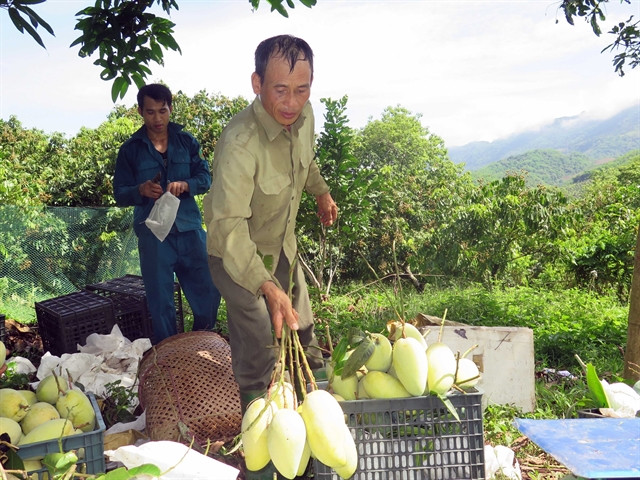Hanoi(VNS/VNA) - Vietnamese firms can expand exports and reap “sweet fruits” inpicky markets by investing in clean production technology, a leadingbusinessman has said.
General Director ofAeon Topvalu Vietnam Limited Company Yuichiro Shiotani recently called on localfirms to do more to meet strict standards in some export markets.
In the coming year,the value of Vietnamese goods sold into modern retail system Aeon Group (Japan)will likely reach 500 million USD and is expected to reach 1 billion USD in thenext five years, according to thoibaokinhdoanh.vn.
However, Shiotanicautioned that Vietnamese suppliers have to invest more in equipment.
Shiotani said onceVietnamese suppliers invest in equipment, they will receive more orders.
As a distributor,Aeon understands the risks businesses face, so he has sent advisers to helpbusinesses invest appropriately in order to receive orders.
Aeon hopes to sign up2,000-3,000 Vietnamese suppliers which can export products to Aeon’ssupermarkets in Japan, Shiotani told thoibaokinhdoanh.vn.
It’s important thatVietnamese manufacturers' production processes meet clean standards, which willrequire investment, according to Shiotani.
Vo Quan Huy, directorof Huy Long An – My Binh Co., Ltd., said that to stabilise exports to pickymarkets, the State needs to build standards for companies in productiondevelopment to help them meet criteria set by the purchaser or the standards ofthe importing country.
According to Huy,firms should be consistent and think for the long-term in meeting standards ofimporting countries to develop sustainably.
For example, pomelocan be exported to the EU, but some firms have had problems with pesticideresidue. To deal with this issue, Huy called for the establishment of a cleangrowing area to attract enterprises to invest in exports.
Meanwhile, exports oflychees into fastidious markets have improved after firms adopted a cleanprocess. This year, the US Department of Agriculture hasgranted codes to 18 lychee growing areas in sevencommunes in Luc Ngan district (Bac Giang province) with a total area of217.89ha.
On exports to Japan,with many years of experience exporting bananas to the country, Huy said thismarket consumed a lot but his enterprise was stuck with the problem thatworkers could not afford to pack bananas in line with Japanese standards.
To conquer adifficult market like Japan, many businesses have decided they must perseverewith a clean production process.
In May, Vietnamesefirm Seagull Agricultural Development Corporation became the first Vietnameseenterprise granted JAS organic certification by Japan’s Ministry of Agriculture- a very strict certification.
To achieve thiscertification, the company had to spend three years practicing JAS standardswith clean agricultural production process and had to avoid the overuse of chemicalsin farming.-VNS/VNA




























